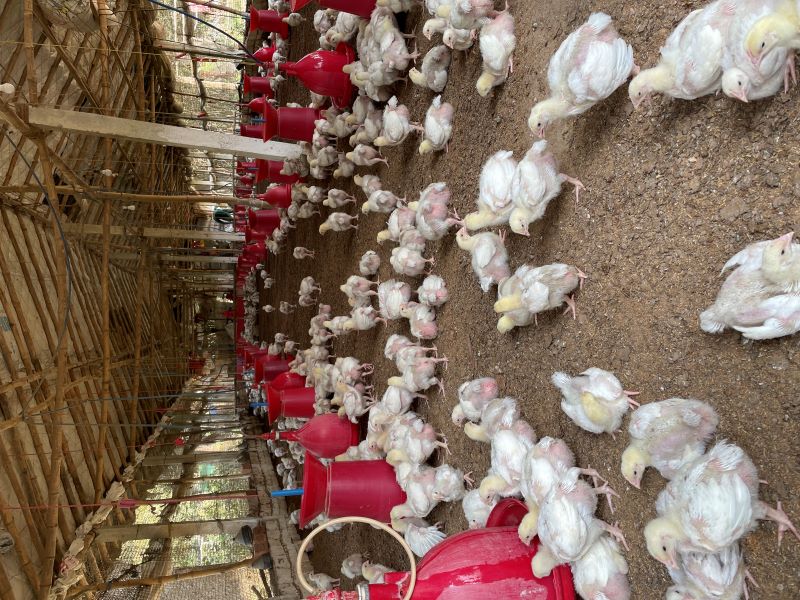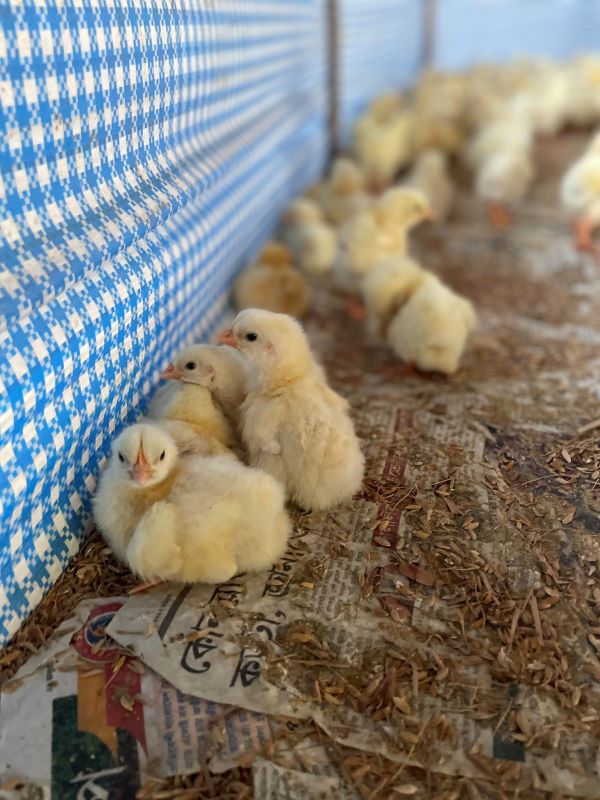New research from the RVC reveals reasons for antibiotic usage in Indian chicken farming
New research from the Royal Veterinary College (RVC), in collaboration with the West Bengal University of Animal & Fishery Sciences (WBUAFS), explored antibiotic use in chicken farming in eastern India, revealing how poultry companies play a significant role in influencing the way antibiotics are used during food production compared to chicken farmers. While further research is needed, the findings can be used to provide information to help reduce antibiotic use in chickens, an important step in combating antibiotic resistance in animals and humans.

Antibiotic resistance is a global challenge and if not controlled effectively, could have serious global social and economic impacts. More than half the world’s antibiotics are used in livestock production. With poultry now the main land-based livestock species being produced worldwide for meat, and a rapid rise in production in South East Asia, there are growing concerns about the overuse of antibiotics during chicken production and its contribution to antibiotic resistance.
As the first study of its kind to use agency theory to examine antibiotic usage in chickens, researchers at the RVC, in collaboration with the WBUAFS, set out to understand the decisions being made that lead to antibiotics being administered to chicks in India’s chicken farms.
The team, led by Dr Mat Hennessey, now a post-doctoral researcher in social science at the RVC, used an economic framework called ‘agency theory’ to look into antibiotic use decisions. The team interviewed 43 poultry stakeholders in Kolkata and the surrounding area of West Bengal, India, spanning farmers, poultry vets and specialists, government vets, poultry company employees, and poultry dealers, between March 2021 and March 2022.
The findings showed poultry production in West Bengal, India, occurs primarily through contract farming arrangements. This is typical of India where 80% of chicken production occurs under these contracts. Poultry companies supply small-scale farmers with inputs for production - chicks, feed, and medicines including antibiotics. Most antibiotic use decisions were made by the poultry companies, rather than farmers themselves and were based on factors including the standard of infrastructure on the farm, the weather, and previous experience of production on a farm.
The farming of chickens was also found to occur in settings which created risk for poultry companies. Birds were often raised in housing open to the environment, meaning they experienced high temperatures, humidity, and potential exposure to infectious diseases. Consequently, antibiotics were used as a key risk mitigation strategy for poultry companies to protect birds during production.
Many poultry stakeholders shared concerns that poultry breeding companies were unable to prevent chicks from being infected with a bacteria called Mycoplasma. This meant antibiotics were used routinely at the start of production. These antibiotics, however, commonly belong to classes deemed critically important for human health (fluoroquinolone and macrolide antibiotics) and therefore should never routinely be used in livestock production.

Poultry companies reported using more antibiotic alternatives, such as probiotics, but said there are often situations where these are not sufficient to protect birds, and cited they are more expensive than antibiotics.
Mat Hennessey, post-doctoral researcher in social science at the RVC, said:
“Our study into contract chicken farming in West Bengal indicates that antibiotics remain a key strategy to reduce risk during production. While poultry companies reported an increased use of antibiotic alternatives there are many situations where this is not currently possible.
“Given the dominance of contract farming in chicken production in India, corporations are well positioned to coordinate a strategy towards lowering antibiotic use. However, these strategies should consider the wider infrastructural, institutional, and political environment within which chicken production occurs to promote antibiotic use in socially responsible ways.
“By working together, poultry companies, farmers and governments can play a key role in reducing antibiotic use in chicken and controlling resistance in humans and animals.”
Dr Indranil Samanta, Head of Department for Veterinary Microbiology at WBUAFS, said:
"The bio security of contract poultry farms in West Bengal is often compromised which results in antibiotic usage by contract companies. Instead, companies may invest in alternative methods to reduce antibiotic usage, such as different types of housing and management, and help to produce safe poultry products for society."
This research was supported by the One Health Poultry Hub, led by the RVC, and the OASIS project (One Health Antibiotic Stewardship in Society) led by the London School of Hygiene and Tropical Medicine.
Notes to Editors
Reference
Hennessey M, Samanta I, Fournie G, Quaife M, Gautham M, Paleja H, Papaiyan K, Biswas R, Alarcon P. (2025) Broiler farming and antibiotic use through an agency theory lens. A case study from West Bengal, India. PLOS ONE https://doi.org/10.1371/journal.pone.0314090
Once the embargo lifts, the paper will be accessible here: 10.1371/journal.pone.0314090
For media enquiries, please contact:
- Jasmin De Vivo at jasmin.devivo@plmr.co.uk or rvc@plmr.co.uk
- Press Line: 0800 368 9520
About the RVC
- The Royal Veterinary College (RVC) is the UK's largest and longest established independent veterinary school and is a Member Institution of the University of London.
- It is one of the few veterinary schools in the world that hold accreditations from the RCVS in the UK (with associated recognition from the AVBC for Australasia, the VCI for Ireland and the SAVC for South Africa), the EAEVE in the EU, and the AVMA in the USA and Canada.
- The RVC is ranked as the top veterinary school in the world in the QS World University Rankings by subject, 2024.
- The RVC offers undergraduate and postgraduate programmes in veterinary medicine, veterinary nursing and biological sciences.
- The RVC is a research-led institution, with 88% of its research rated as internationally excellent or world class in the Research Excellence Framework 2021.
- The RVC provides animal owners and the veterinary profession with access to expert veterinary care and advice through its teaching hospitals and first opinion practices in London and Hertfordshire.

.jpg?v=638497413036472962)